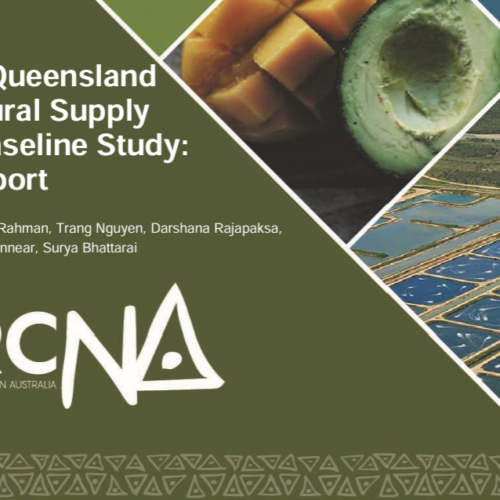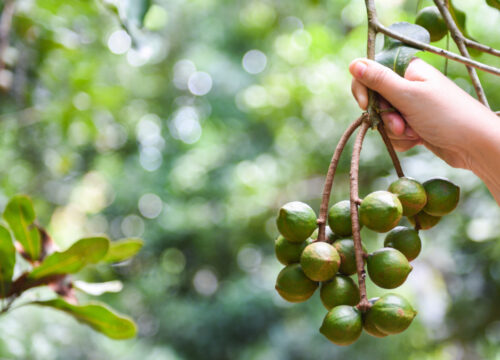
- Author Akbar, D., Rahman, A., Nguyen, T., Rajapaksa, D., Rolfe, J., Kinnear, S., Bhattarai, S.
- Publish date 19 June 2023
- Type Report
- ISBN 978-1-922437-48-8
- Documents
- Agriculture
- Beef
- Broadacre cropping
- Horticulture
- Strategic policy development
- Supply chain development
Summary
Export of agricultural commodities from the Central Queensland (CQ) region offers significant growth prospects due to existing multi-sectoral developments, the potential for market diversification, and ability for product value-adding. However, the functioning of export supply chains within the CQ region is yet to be examined in terms of supply and market size, labour markets, land and water availability, external economies and diseconomies. Undertaking a structured analysis of key products, supply chain features, and the structure and processes of markets, offers an important first step in realising the full potential of the region’s agricultural profile through well-coordinated and integrated supply chains.
This report provides a baseline framework for agricultural supply chain characterisation at Central Queensland-regional level as well as to develop a supply chain mapping tool, which can be used to build a database of commodity specific agricultural supply chain. It’s expected this mapping tool will help identify commercially viable produce for local and export markets. This report examined the literature to develop a baseline framework and mapping tool for describing agricultural supply chains, validated and refined the framework and mapping tool to achieve greater reliability and comprehensiveness, identified limitations in agricultural datasets in Australian and other contexts which, if resolved, could enable more effective supply chain mapping, discussed data/information about key products and their supply chains in CQ, and used the tool to map the supply chains of seven case study agricultural commodities in CQ.
The key highlights from this work are identified as:
- Development and validation of agricultural supply chain baseline framework and a mapping tool, which can be tailored for different commodities.
- Identification of five commercially important commodities (i.e., beef, cotton, wheat, sorghum and chickpeas) at the central Queensland (CQ) regional level and two niche commodities (i.e., mandarin and table grapes) with significant economic value at the local government level.
- Collection, collation and ground truthing of production and export data for selected agricultural commodities, and generation of a commodity-based agricultural supply chain mapping tool.
- Identification of the current and potential future export destinations for the selected agricultural commodities.
- Scoping of future opportunities to digitise and commercialise the Agricultural Supply Chain Mapping Tool.
Projects
Central Queensland regional agricultural supply chain baseline study
Central Queensland (CQ) regional councils are proposing to build on current and past research undertaken in CQ, Mackay-Isaac-Whitsunday (MIW), north Queensland (NQ), and far north Queensland (FNQ) regions, to define the agricultural supply chain baseline information and network for the CQ region. This will ensure a common understanding of capabilities of production commodities, markets, supply chain opportunities and challenges is established across each region, as well as an understanding of international demand for the relevant agricultural commodities. The potential for market diversification, value added product development and exporting agricultural commodities will be examined in terms of its supply chain efficiency, supply and market (demand) size, availability of labour, land and water, external economies, and diseconomies. This project aims to develop a unified base line assessment framework for sustainable agricultural supply chain management. This framework helps with the design of a supply chain mapping tool that not only characterise the agricultural products but also enables the user to understand the features, structure and process of agricultural supply chains


